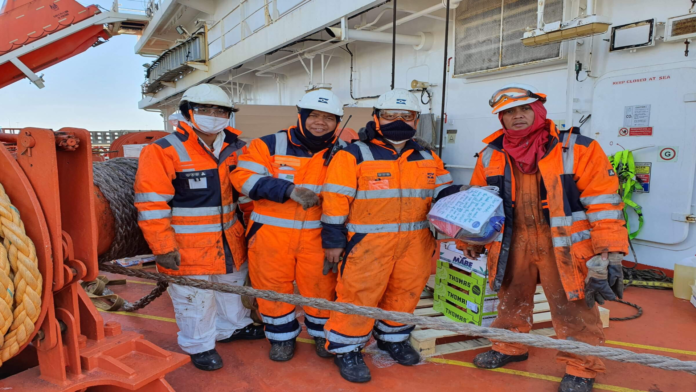Filipino seafarers can depend on Congress to fully support the initiative of President Ferdinand R. Marcos Jr. to promote their welfare and to invigorate the maritime industry.
“Under President Marcos’ leadership, we are committed to fostering an enabling environment that promotes the welfare of seafarers, supports the growth of the maritime industry, and advances sustainable practices,” Speaker Martin Romualdez said in his speech during the International Transport Workers’ Federation (ITF) Seafarers’ Expo at the Cultural Center of the Philippines complex in Pasay City on Friday.
Department of Migrant Worker (DMW) Secretary Susan Ople and House Deputy Speaker Raymond Democrito Mendoza also graced the event organized by the ITF, an international trade union of the federation recognized as the voice of the world’s two million seafarers.
Romualdez said Filipino seafarers are the lifeblood of the maritime industry, providing an immense contribution to the country’s economy.
In 2022, an estimated 489,852 Filipino seafarers were deployed, constituting around 25 percent of the world’s mariners.
Filipino seafarers remitted USD6.5 billion or roughly 1.7 percent of the country’s gross domestic product in 2019.
Romualdez underscored the enactment of the “Magna Carta of Filipino Seafarers“, one of the significant bills that the House of Representatives intends to legislate during the Marcos’ administration.
The Magna Carta of Seafarers or House Bill (HB) No. 7325 is one of the 33 priority bills of President Marcos that the House approved during the first regular session of the 19th Congress.
He said the Magna Carta of Filipino Seafarers is a comprehensive and progressive legislation that will address various challenges being encountered by the seafarers.
“It ensures fair and just working conditions, provides for reasonable compensation, guarantees access to quality healthcare and education, and promotes the welfare of seafarers and their families. This legislation stands as a testament to President Marcos’ dedication to creating a conducive environment for seafarers to thrive,” he said.
Romualdez said the bill emphasizes the importance of continuous training and skills development for the seafarers, recognizing the dynamic nature of the maritime industry and the need for seafarers to adapt to evolving technologies and best practices.
“By empowering seafarers with the necessary knowledge and skills, we not only enhance their professional capabilities but also ensure the sustained growth and competitiveness of our maritime sector,” he said.
Last March, the European Commission (EC) agreed to drop the impending ban that would have affected some 50,000 Filipino mariners after the Philippine government addressed the concerns raised by the European Maritime Safety Agency (EMSA) about the quality of training of Filipino seafarers.
“To the seafarers present here today and those serving at sea, I offer my heartfelt appreciation for your tireless efforts and unwavering commitment,” Romualdez said. (PNA)


